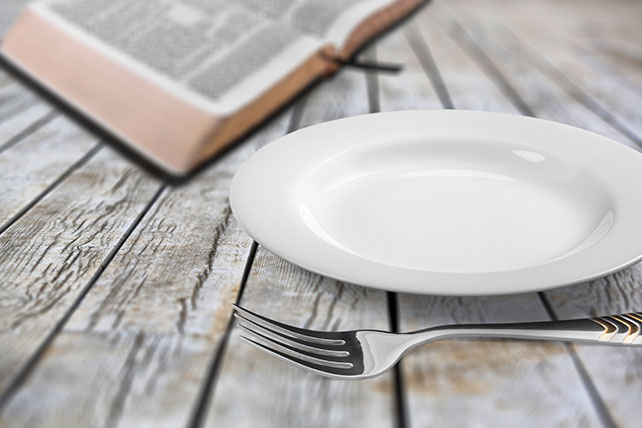7. Fill Time With Other Activity
People are often surprised by how much time they spend preparing food, eating, and cleaning up. During a fast, all that time becomes open. Before your fast, decide how you will fill some of that open time.
You may engage in prayer, meditation, or spiritual reading. For example, beginners can pray for the hungry. Others may plan an act of service, such as serving at a pantry or shelter. Again, we return to the theme of filling what’s been made empty—in this case, time.
The Blessings of Fasting
From beginners to seasoned participants, I highly recommend choosing a purpose for your fast. Be intentional, and do it beforehand. That way, your activity during the fast can align with the purpose. In other words, the more intention you have before the fast, the more fruitful it will be. Intention is key behind how to fast for God.
Without intention, it’s tempting to sit around feeling bad for yourself. One might think, “If I’m fasting, I’m supposed to feel bad.” But feeling bad isn’t the purpose of fasting. That’s just a side effect that happens as your body gets used to it. The main purpose of fasting involves the question, “What do I desire to be filled with?”
In my experience, fasting leads to wonderful surprises. When fasting, I often feel energized. Or, at the very least, filled with enough energy to maintain my usual activities. In addition, I often feel serenity while fasting. I invite you to try fasting and find surprises of your own.
This article about how to fast for God originally appeared here. It’s based on Matthew Kozlowski’s 2016 interview with Jacques Hadler.


